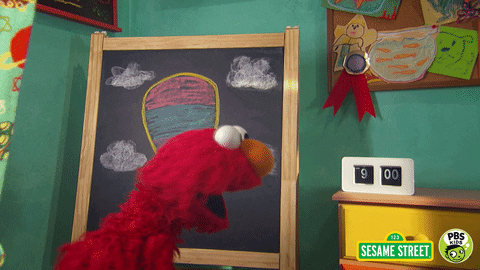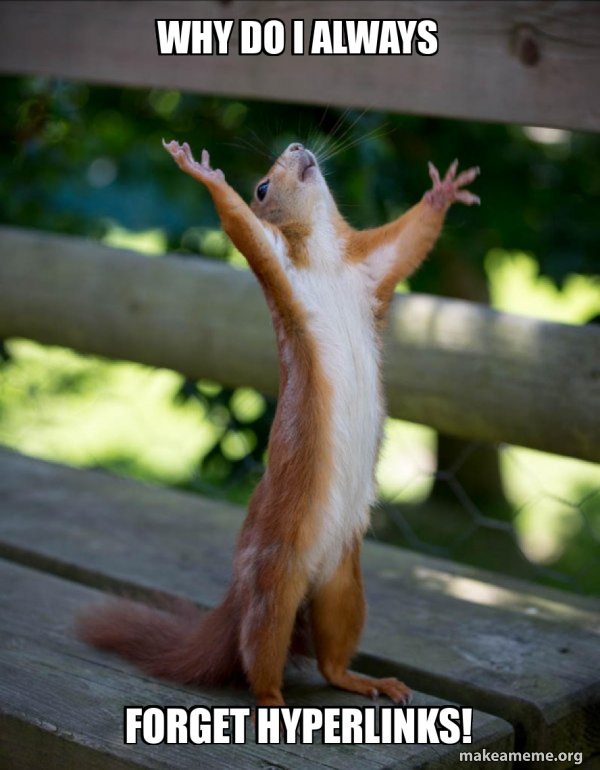
A Bit of History & More Practice
Welcome Back!
**Here is the class recording from 9/26
OK – its time to dig into a bit of history as we continue practicing, learning and experimenting with our new blogging skills. As you can see, it takes practice, time, revision and also patience.
*Remember, my posts are also examples of the formatting and things that we should include in each post 🙂
(Images, GIFS, Memes, Hyperlinks, Videos – can be made, shared and embedded here)
Let’s dig in ->
Blogging and digital storytelling are two concepts that have been intertwined since the rise of the internet,
Blogging, refers to the practice of writing online, where people share their thoughts, opinions, and experiences through personal or professional platforms.
Digital storytelling, on the other hand, involves using digital media to create and share stories through a combination of images, text, and multimedia.
This week, we will explore a bit of the history of blogging and digital storytelling. I’ll provide a few common case study examples, and offer a fun activity for students to express their passions!
(The assignment details are below)

The History of Blogging:
The origins of blogging can be traced back to the early 1990s when the first personal blogs began to appear on the internet. These early blogs were simple online journals where people would share their daily lives and thoughts with others. However, it wasn’t until the late 1990s and early 2000s that blogging became more mainstream.
The rise of blogging can be attributed to the introduction of platforms such as LiveJournal, Blogger, and WordPress (thats Us!). These platforms made it easier for people to create and publish their own blogs. As a result, blogging became more accessible to the masses, and people from all walks of life began to create their own blogs to share their thoughts and experiences with the world.
In the early days of blogging, most blogs were personal in nature. People would share their thoughts and opinions on various topics, such as politics, entertainment, and personal relationships. However, as blogging grew in popularity, businesses and organizations also began to use blogs as a way to connect with their audience.
Today, blogging has become an essential part of digital marketing. Many businesses and organizations use blogs to provide valuable information to their customers and to establish themselves as experts in their industry. Blogging has also become an excellent way for individuals to build their personal brand and to showcase their expertise on a particular subject.
(a brief history of the Internet – 1st Meme / 1st GIF – this is context!)
Case Study Examples of Blogging:
- The Pioneer Woman: Ree Drummond, also known as the Pioneer Woman, started her blog in 2006 as a way to share her life on a ranch in Oklahoma. Her blog quickly became popular, and she now has over 3 million monthly page views. Ree has since published multiple books, hosted a cooking show, and even launched her own product line. Her blog continues to be a huge success and has become a primary source of income for her and her family.
2. Mashable: Mashable is a news and entertainment website that covers topics related to technology, social media, and digital culture. The site was founded in 2005 by Pete Cashmore, who began by writing blog posts about social media news and trends. Today, Mashable is one of the most popular websites on the internet, with over 45 million monthly visitors. The site has also expanded to include video content and social media accounts on various platforms. Mashable was acquired by Ziff Davis for $50M on Dec 5, 2017
3. Huffington Post: The Huffington Post was launched in 2005 by Arianna Huffington as a liberal news and commentary website. The site quickly became popular and was acquired by AOL in 2011. Today, the Huffington Post covers a wide range of topics, including politics, entertainment, and lifestyle. The site has won numerous awards and is considered one of the most influential news websites on the internet.

The History of Digital Storytelling:
The concept of digital storytelling emerged in the 1990s, and it involves using digital media to create and share stories. Digital storytelling can be used for a wide range of purposes, including entertainment, education, marketing, and advocacy.
Digital storytelling typically involves combining different forms of media, such as images, text, audio, and video, to create a cohesive narrative. The end result is a powerful and engaging story that can be shared with a wide audience.
One of the most significant advantages of digital storytelling is that it allows people to share their stories in a way that is more immersive and interactive than traditional storytelling methods. Digital stories can be viewed on a range of devices, including smartphones, tablets, and computers, and can be shared on social media platforms or personal websites.
Over the years, digital storytelling has become more accessible to the general public, thanks to the development of tools and software that make it easier to create and share digital stories. This has led to an increase in the use of digital storytelling in education, where it is used as a way to teach students how to express their thoughts and ideas in a creative and engaging way.

Case Study Examples of Digital Storytelling:
- Humans of New York: Humans of New York is a popular photoblog that was started by Brandon Stanton in 2010. The blog features portraits of people in New York City, along with short stories about their lives. The blog quickly became popular and has since expanded to include books, a social media presence, and even a TV series. The success of Humans of New York can be attributed to its unique and engaging approach to storytelling, which combines stunning photography with personal stories that are both relatable and inspiring.
2. The New York Times: The New York Times has been a leading source of news and information for over a century. In recent years, the publication has embraced digital storytelling as a way to engage its audience and provide more immersive and interactive content. The Times has used a range of digital storytelling techniques, including interactive graphics, virtual reality experiences, and multimedia features, to tell compelling stories that resonate with readers.
3. National Geographic: National Geographic is a well-known brand that is synonymous with photography and storytelling. The publication has embraced digital storytelling as a way to reach a wider audience and to provide a more immersive and interactive experience. National Geographic uses a range of digital storytelling techniques, including photo essays, videos, and interactive features, to share stories about the natural world and the people who inhabit it.

**Assignment #4 – Blogging about Your Passions!**
A great way to practice and apply your new blogging experiences is through self-expression! What are your passions? What are you passionate about in this world?
Create a new “digital story” by crafting a new blog post about what you are passionate about!
To get started, 1st, you should first choose a topic that you are in fact passionate about! Perhaps it’s a hobby? Sport? Creative expression? A political or social issue? Baking? … etc,
But, What is a Passion? <– READ THIS
2nd, then you should gather images, videos, and other multimedia elements that relate to your passions. This could include images, photos, drawings, audio recordings, GIFS, memes & videos. These things will help give “Context” to your storytelling and help others make a connection and stay engaged.
3rd, Write! Describe your passion(s)! Share your personal stories and reflections! How did you get introduced to your passion(s) -details details details!? Let your personality flow through your post!
And don’t forget to add hyperlinks!




